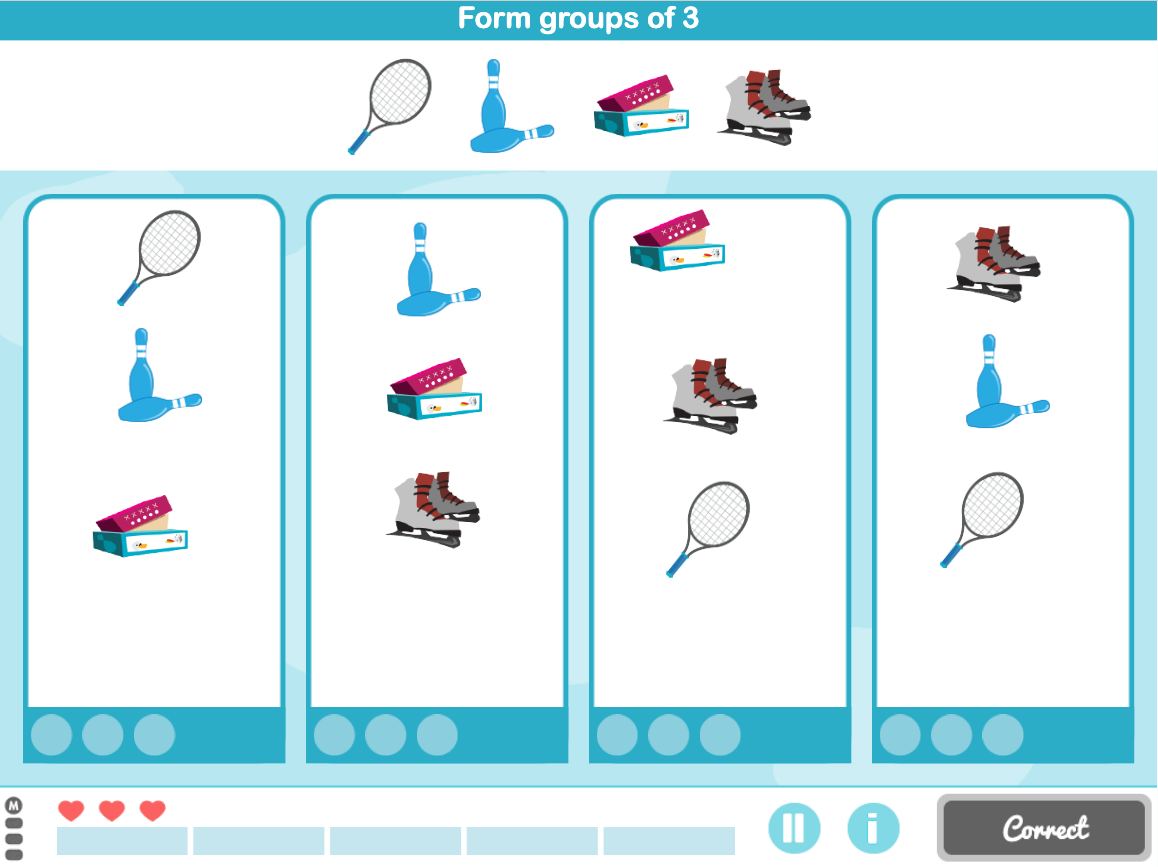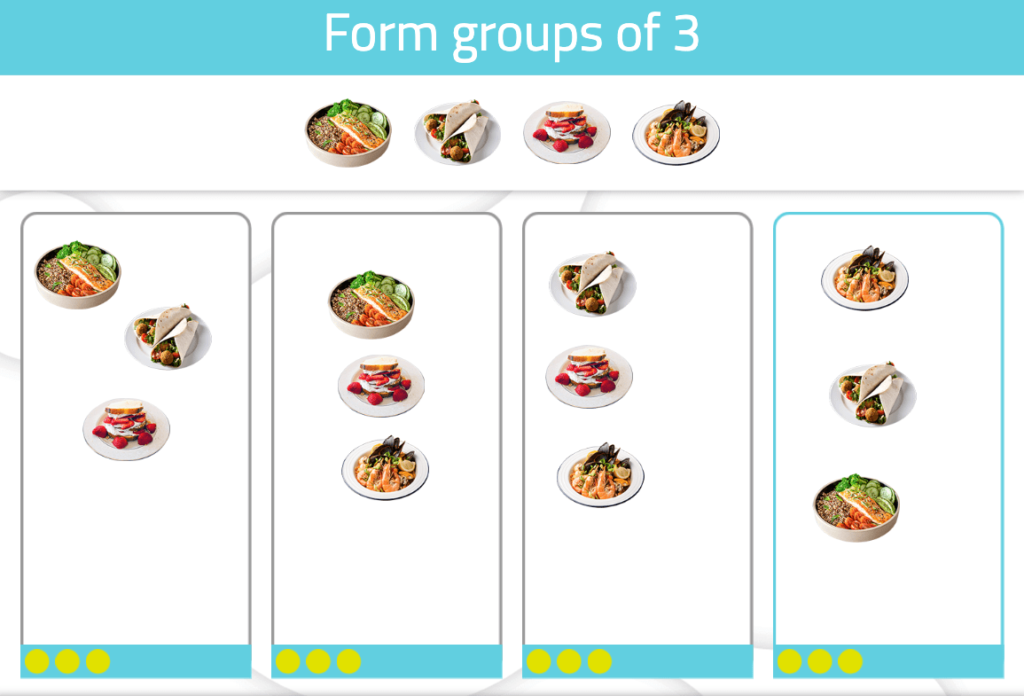Cognitive flexibility exercises help improve mental adaptability and problem-solving skills. These exercises train your brain to switch thinking patterns.
Cognitive flexibility is crucial for effective decision-making and handling complex tasks. Engaging in exercises that challenge your brain can enhance this skill. Activities such as puzzle-solving, learning new languages, or switching between different tasks can boost cognitive flexibility. Regular practice keeps your mind sharp and adaptable.
It also improves your ability to think creatively and solve problems efficiently. Incorporating these exercises into your daily routine can yield significant benefits. A flexible mind is better equipped to handle unexpected challenges and adapt to new situations, making cognitive flexibility exercises an essential part of mental fitness.
Introduction To Cognitive Flexibility
Cognitive flexibility is a key skill in our daily lives. It helps us adapt to new situations. It improves problem-solving and enhances creative thinking.
What It Is
Cognitive flexibility refers to the capacity to transition between ideas or tasks. It helps us think about multiple concepts at once. This skill allows us to adapt to new information easily.
Why It Matters
Cognitive flexibility is crucial for effective problem-solving. It helps us find different ways to solve a problem. It also enhances our creative thinking.
This skill is important in both personal and professional life. It allows us to handle unexpected changes better. It makes us more resilient and adaptive.
- Improves problem-solving skills
- Enhances creative thinking
- Helps adapt to new situations
- Boosts resilience
Examples Of Cognitive Flexibility Exercises
- Practice switching between different tasks.
- Try solving puzzles and brain games.
- Take up artistic endeavors such as writing or painting.
- Learn a new language or skill.
Incorporating these exercises into your routine can improve cognitive flexibility. Begin with easy assignments and progressively raise the level of difficulty. Enjoy the process of enhancing your mind’s adaptability.

Credit: neuronup.us
Benefits Of Cognitive Flexibility
Cognitive flexibility exercises bring many benefits to the brain. These exercises help in thinking more creatively and adapting to new situations. Let’s dive into some key benefits.
Enhanced Problem-solving
Enhanced problem-solving is one of the main benefits. People with cognitive flexibility can think of multiple solutions. They can look at problems from different angles. This ability helps in finding the best solution quickly.
Here are some ways cognitive flexibility improves problem-solving:
- Creative Thinking: It encourages out-of-the-box ideas.
- Quick Adaptation: Adjusting strategies is easier.
- Better Decision Making: More options lead to better choices.
Improved Adaptability
Cognitive flexibility also leads to improved adaptability. This means handling changes and unexpected events better. People with high adaptability can switch tasks and roles easily.
Benefits of improved adaptability include:
- Reduced Stress: Easier to handle changes.
- Increased Productivity: Switching tasks without losing focus.
- Better Social Skills: Easier to understand different perspectives.
Summary Table
| Benefit | Description |
|---|---|
| Enhanced Problem-Solving | Thinking of multiple solutions and making better decisions. |
| Improved Adaptability | Handling changes and switching tasks easily. |
Daily Exercises For Cognitive Flexibility
Cognitive flexibility helps your brain adapt to new situations. It improves problem-solving and creativity. Doing daily exercises can enhance this skill. Here are some effective activities you can try.
Mindfulness Practices
Mindfulness practices can boost your cognitive flexibility. They help you stay focused and calm. Try these simple exercises:
- Deep Breathing: Sit quietly and breathe deeply. Focus on your breath.
- Body Scan: Focus on the many body parts you own. Notice any tension.
- Mindful Walking: Walk slowly. Sensate every stride you take in your environment.
These practices help you become more aware. They train your brain to switch tasks easily.
Brain-teasing Puzzles
Brain-teasing puzzles can make your brain more flexible. They challenge your thinking patterns. Here are some puzzles to try:
| Puzzle Type | Benefits |
|---|---|
| Sudoku | Improves logical thinking and problem-solving skills. |
| Crosswords | Enhances vocabulary and verbal skills. |
| Jigsaw Puzzles | Boosts visual-spatial reasoning. |
Engaging in these puzzles daily keeps your mind sharp. They help you think in new ways.

Credit: helpfulprofessor.com
Physical Activities To Boost Brain Power
Physical activities can do wonders for your brain power. They enhance cognitive flexibility and promote mental well-being. Engaging in various physical exercises helps to stimulate brain functions and improves memory.
Aerobic Exercises
Aerobic exercises are excellent for boosting brain health. They increase heart rate and blood flow to the brain. This helps in enhancing cognitive functions and memory.
- Running: Great for improving mental clarity.
- Cycling: Enhances overall brain performance.
- Swimming: Boosts mood and cognitive flexibility.
Coordination Activities
Coordination activities are essential for brain power. They require the brain to work harder, improving neural connections. These activities help to sharpen mental skills and coordination.
- Ball games: Enhance hand-eye coordination and brain function.
- Dance routines: Improve memory and brain processing speed.
- Yoga: Boosts mental focus and cognitive flexibility.
Creative Exercises For Mental Agility
Cognitive flexibility is the ability to adapt and switch between tasks and thoughts. It is crucial for problem-solving and creativity. Engaging in creative exercises can significantly enhance mental agility. These exercises stimulate the brain and improve flexibility.
Art And Drawing
Art and drawing are powerful tools for boosting cognitive flexibility. They encourage imaginative thinking and help visualize different perspectives.
- Scribble Art: Start with random scribbles. Turn them into recognizable shapes or scenes. This exercise enhances creativity and quick thinking.
- Coloring Mandalas: Coloring complex patterns like mandalas helps focus and calms the mind. It promotes attention to detail and pattern recognition.
- Draw with Non-Dominant Hand: Drawing with your non-dominant hand challenges your brain. It enhances coordination and flexibility.
Storytelling Challenges
Storytelling is a great way to exercise your brain. It involves creating narratives, which improves mental flexibility and communication skills.
- Random Words Story: Pick three random words. Create a story that includes all three words. This exercise promotes quick thinking and creativity.
- Picture Prompts: Use a random picture as a prompt. Write a short story inspired by the image. This helps in generating ideas and thinking outside the box.
- Group Storytelling: In a group, each person adds a sentence to a story. This exercise enhances collaborative thinking and creativity.
Engaging in these creative exercises regularly can significantly boost mental agility. They are fun, easy to do, and effective in enhancing cognitive flexibility.
Role Of Diet In Cognitive Flexibility
A well-balanced diet can greatly enhance cognitive flexibility. Cognitive flexibility is the brain’s ability to adapt to new information. Proper nutrition plays a crucial role in this process. Eating the right foods can improve brain function, memory, and overall mental health.
Brain-boosting Foods
Certain foods are known to boost brain health. These foods contain essential nutrients that support cognitive flexibility. Here is a list of brain-boosting foods:
- Fatty Fish: Rich in omega-3 fatty acids, which are vital for brain health.
- Blueberries: Contain antioxidants that protect the brain from oxidative stress.
- Turmeric: Has anti-inflammatory properties and boosts brain-derived neurotrophic factor (BDNF).
- Broccoli: Packed with antioxidants and vitamin K, which support brain function.
- Pumpkin Seeds: Provide magnesium, iron, zinc, and copper, all important for brain health.
- Oranges: High in vitamin C, which is essential for preventing mental decline.
Hydration Importance
Staying hydrated is crucial for cognitive flexibility. Even slight dehydration can impair brain function. Water helps in delivering nutrients to the brain. It also removes toxins from the brain.
Here are some tips to stay hydrated:
- Drink at least 8 glasses of water daily.
- Include water-rich foods like cucumbers and watermelons in your diet.
- Avoid excessive caffeine and alcohol, as they can dehydrate you.
Below is a table summarizing the role of diet in cognitive flexibility:
| Food | Benefits |
|---|---|
| Fatty Fish | Rich in omega-3 fatty acids |
| Blueberries | Contain antioxidants |
| Turmeric | Anti-inflammatory properties |
| Broccoli | Rich in vitamin K |
| Pumpkin Seeds | Contain magnesium, iron, zinc, and copper |
| Oranges | High in vitamin C |
Technology And Cognitive Training
Technology has revolutionized cognitive training. It offers new ways to boost brain health. From apps to virtual reality, the options are vast. These tools make cognitive exercises fun and engaging.
Brain Training Apps
Brain training apps have gained popularity. They offer exercises to improve cognitive flexibility. These apps often include puzzles, memory games, and problem-solving tasks.
- Lumosity: Offers personalized training plans.
- Peak: Features games designed by neuroscientists.
- Elevate: Focuses on improving communication skills.
Each app tracks progress and adapts to individual needs. This personalized approach makes training more effective.
Virtual Reality Exercises
Virtual reality (VR) adds a new dimension to cognitive training. VR exercises immerse users in interactive environments. This makes the experience more engaging and realistic.
Examples of VR exercises include:
- Memory Challenges: Users navigate through virtual spaces to find objects.
- Problem-Solving Tasks: Users solve puzzles in a 3D environment.
- Attention Games: Users focus on specific tasks while ignoring distractions.
VR exercises can improve spatial awareness and problem-solving skills. They offer a unique way to train the brain in a fun setting.
| Tool | Benefit |
|---|---|
| Brain Training Apps | Adapt to individual needs |
| Virtual Reality Exercises | Engaging and realistic |
Combining these tools can enhance cognitive flexibility. They provide varied and effective ways to train the brain.
Measuring Progress In Cognitive Flexibility
Measuring progress in cognitive flexibility is essential to understand how well the brain adapts to new challenges. It helps identify areas that need improvement and guides the direction of future exercises. There are various ways to measure this progress, including self-assessment techniques and professional evaluations.
Self-assessment Techniques
Self-assessment techniques are simple tools you can use to track your own progress. These techniques often include questionnaires, daily journals, and cognitive games.
- Questionnaires: Answer questions about your ability to switch between tasks.
- Daily Journals: Write about your daily experiences and note any difficulties.
- Cognitive Games: Play games that challenge your brain’s flexibility.
These tools offer a snapshot of your cognitive flexibility. They provide quick feedback and can be done at your own pace.
Professional Evaluations
Professional evaluations involve assessments conducted by experts. These evaluations are more detailed and provide a deeper understanding of your cognitive flexibility.
| Type | Description |
|---|---|
| Neuropsychological Tests | Assessments that measure various cognitive functions. |
| Clinical Interviews | Structured conversations to evaluate your cognitive abilities. |
| Behavioral Observations | Experts observe your behavior in different settings. |
These methods provide a comprehensive view of your cognitive flexibility. They help identify specific areas that need targeted exercises.
Both self-assessments and professional evaluations are important. They work together to give a complete picture of your cognitive flexibility progress.
Incorporating Cognitive Flexibility In Daily Routine
The brain’s capacity to transition between thinking about two distinct notions is known as cognitive flexibility. It’s also about thinking about multiple concepts simultaneously. Incorporating cognitive flexibility exercises into your daily routine can help improve your problem-solving skills, enhance creativity, and boost productivity.
Habit Formation
Building habits is essential for incorporating cognitive flexibility into your life. Start with small, manageable changes. For example, try using your non-dominant hand for daily tasks. This simple exercise challenges your brain and promotes flexibility.
- Brush your teeth with the opposite hand.
- Switch the hand you use for eating.
- Try writing with your non-dominant hand.
Another effective method is to change your routine slightly. Take a different route to work or rearrange your workspace. These small adjustments can help your brain become more adaptable and flexible.
Time Management Tips
Effective time management can enhance cognitive flexibility. Use a planner to schedule your tasks. Breaking down tasks into smaller chunks can help you switch between tasks more efficiently.
- Set clear, achievable goals for each day.
- Prioritize tasks based on importance and urgency.
- Take short breaks between tasks to reset your mind.
Another tip is to allocate specific times for creative activities. Engaging in activities like drawing or writing can stimulate your brain and improve flexibility.
| Activity | Time Allocation |
|---|---|
| Creative Writing | 15 minutes |
| Drawing | 20 minutes |
| Meditation | 10 minutes |
Incorporating these small changes can lead to significant improvements in cognitive flexibility. Regular practice is key.

Credit: helpfulprofessor.com
Conclusion And Future Directions
Cognitive flexibility exercises are important for brain health. They help keep the brain sharp and adaptable. This section explores the long-term benefits and the importance of continued practice.
Long-term Benefits
Practicing cognitive flexibility exercises offers many long-term benefits. These benefits include improved problem-solving skills, better memory, and enhanced creativity.
| Benefit | Description |
|---|---|
| Improved Problem-Solving | Helps in finding solutions quickly and efficiently. |
| Better Memory | Aids in retaining and recalling information easily. |
| Enhanced Creativity | Boosts the ability to think of new ideas. |
These benefits make cognitive flexibility exercises essential for everyone. They are not just for children; adults benefit too.
Continued Practice
Continued practice is crucial for maintaining cognitive flexibility. Regular exercises keep the brain engaged and active.
- Set aside time daily for brain exercises.
- Engage in activities that challenge your thinking.
- Play puzzles or brain games regularly.
Consistency is key to reaping the benefits. Make cognitive flexibility a part of your daily routine.
Example of a simple brain exercise in code
Solve this: What is 5 + 3?
Simple exercises like this keep the brain sharp. Invite people to participate with you in these activities.
Frequently Asked Questions
How Do I Increase My Cognitive Flexibility?
To increase cognitive flexibility, try new activities, challenge assumptions, and practice mindfulness. Engage in puzzles, learn new skills, and read diverse genres. Regularly exercise and maintain a healthy diet.
What Is An Example Of Cognitive Flexibility?
Switching between talking to a coworker and a child demonstrates cognitive flexibility. It involves adapting communication styles quickly.
How Do You Teach Students Cognitive Flexibility?
Teach cognitive flexibility by using problem-solving tasks and diverse learning activities. Encourage questioning and adapting perspectives. Provide real-world scenarios to practice. Foster an open-minded classroom environment.
How Does Exercise Help Cognitive Flexibility?
Exercise boosts cognitive flexibility by increasing blood flow to the brain. It enhances neural connections and reduces stress. Regular physical activity improves memory, focus, and problem-solving skills, making the brain more adaptable and efficient.
Conclusion
Enhancing cognitive flexibility can significantly boost your mental agility. Regular practice of these exercises fosters creativity and problem-solving skills. Make them part of your daily routine to see lasting benefits. Sharpening your mind leads to improved productivity and overall well-being.
Start today and experience the transformative power of cognitive flexibility.

